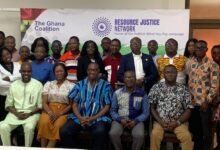CHIEF Executive Officer (CEO) of the Ghana Cocoa Board, Joseph Boahen Aidoo, has dismissed reports that there is child labour on the country’s cocoa farms.
A 2018 Cocoa Barometer report said an estimated 2.1 million children were working on cocoa fields in Côte d’Ivoire and Ghana, the world’s two largest cocoa producers.
Attributing it to the high levels of poverty, increased cocoa production and lack of schools, the report published by cocoa sector civil society organisations, Solidaridad, Oxfam and Green America said “not a single company or government is anywhere near reaching the sector-wide objective of the elimination of child labour, and not even near their commitments of a 70 per cent reduction of child labour by 2020”.
But in an interview with the Ghanaian Times on the sideline of a cocoa validation workshop on cocoa sector strategy document II in Accra yesterday, Mr Aidoo christened what pertains in Ghana as “Child Work”.
“Quite often, people confuse child work with child labour. When we were young, we accompanied our mothers to the riverside to fetch water, so will you call that child labour?
“In the same way if farmers are going to break the cocoa and remove the beans, you find children between 12 and 15 years accompany their parents to help them with the process. You cannot say that is child labour,” he said.
To him when children do not help their parents during their off days from school on the farms and to learn the trade from them in the process, “a time will come where when all these aged cocoa farmers leave, there will be no next generation of cocoa farmers”.
He added that: “If a child is 16, 17 years and he or she accompanies the parent to the farm and assist on the farm that cannot be termed child labour.”
According to Mr Boahen, a research he conducted over a 17-year period revealed that no farmer wanted his or her child to engage in farming as a profession.
“So if farmers themselves do not want their children to be cocoa farmers then whose child is in this child labour,” he asked.
In Europe and America, Mr Aidoo said children escort their parents to their cattle ranches but that has not been termed as child labour, questioning why the African would be said to be enslaving his children because they assisted their parents on the farm.
On what to do to address the wrong impression, Mr Aidoo said a farmer database was to be created to capture the totality of every cocoa farming household information including age, sex and the specific tasks performed on the farm.
The workshop, which brought together stakeholders from academia, the business community, cocoa industry, labour and farmer organisations sought to create a modernised, resilient and competitive cocoa environment where all stakeholders strive towards a sustainable cocoa economy.
BY JULIUS YAO PETETSI







